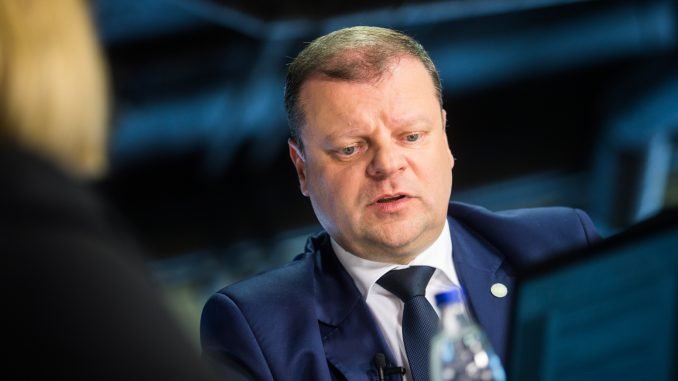
“Let’s not rush until we have the committee’s findings. If some problem areas are revealed, as far as the media are concerned, decisions that will have to be taken or could be taken should not be tough or drastic,” Skvernelis told reporters on Monday.
“I believe, however, that the media will be able to do a lot through self-regulation, self-government. I don’t think that today we should speak about radical or tough measures,” he added.
The prime minister’s comment came after Vytautas Bakas, chairman of the Seimas Committee on National Security and Defense, mentioned in a TV interview last Sunday that certain media organizations acting against the state’s interests might have their licenses revoked.
The committee has until June to complete its parliamentary investigation into business groups’ influence on politicians and political processes in the country.
Edmundas Vaitekūnas, chairman of the Lithuanian Radio and Television Commission (LRTK), says that there is no clear legal mechanism for revoking an issued broadcasting license if there are signs of activities running counter to national security.
However, the media watchdog would consider suspending a license if a special commission provided such information.
MG Baltic, the owner of the LNK, BTV, TV1, Info TV and Liuks! television channels, described Bakas’ comments as pressure on the media and regulators.
In a report to the Seimas commission that was made public a week ago, the State Security Department says that MG Baltic, in pursuit of its interests, had developed a long-term strategy that can be regarded as destructive activity posting a threat to national security.
As part of the implementation of its strategy, the business group used its media organizations to put pressure on politicians, civil servants and officials, the intelligence agency’s report.

Be the first to comment